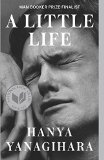Summary | Excerpt | Reviews | Beyond the Book | Readalikes | Genres & Themes | Author Bio

The next day, Willem met JB at his office. JB worked as a receptionist at a small but influential magazine based in SoHo that covered the downtown art scene. This was a strategic job for him; his plan, as he'd explained to Willem one night, was that he'd try to befriend one of the editors there and then convince him to feature him in the magazine. He estimated this taking about six months, which meant he had three more to go.
JB wore a perpetual expression of mild disbelief while at his job, both that he should be working at all and that no one had yet thought to recognize his special genius. He was not a good receptionist. Although the phones rang more or less constantly, he rarely picked them up; when any of them wanted to get through to him (the cell phone reception in the building was inconsistent), they had to follow a special code of ringing twice, hanging up, and then ringing again. And even then he sometimes failed to answer--his hands were busy beneath his desk, combing and plaiting snarls of hair from a black plastic trash bag he kept at his feet.
JB was going through, as he put it, his hair phase. Recently he had decided to take a break from painting in favor of making sculptures from black hair. Each of them had spent an exhausting weekend following JB from barbershop to beauty shop in Queens, Brooklyn, the Bronx, and Manhattan, waiting outside as JB went in to ask the owners for any sweepings or cuttings they might have, and then lugging an increasingly awkward bag of hair down the street after him. His early pieces had included The Mace, a tennis ball that he had de-fuzzed, sliced in half, and filled with sand before coating it in glue and rolling it around and around in a carpet of hair so that the bristles moved like seaweed underwater, and "The Kwotidien," in which he covered various household items--a stapler; a spatula; a teacup--in pelts of hair. Now he was working on a large-scale project that he refused to discuss with them except in snatches, but it involved the combing out and braiding together of many pieces in order to make one apparently endless rope of frizzing black hair. The previous Friday he had lured them over with the promise of pizza and beer to help him braid, but after many hours of tedious work, it became clear that there was no pizza and beer forthcoming, and they had left, a little irritated but not terribly surprised.
They were all bored with the hair project, although Jude--alone among them--thought that the pieces were lovely and would someday be considered significant. In thanks, JB had given Jude a hair-covered hairbrush, but then had reclaimed the gift when it looked like Ezra's father's friend might be interested in buying it (he didn't, but JB never returned the hairbrush to Jude). The hair project had proved difficult in other ways as well; another evening, when the three of them had somehow been once again conned into going to Little Italy and combing out more hair, Malcolm had commented that the hair stank. Which it did: not of anything distasteful but simply the tangy metallic scent of unwashed scalp. But JB had thrown one of his mounting tantrums, and had called Malcolm a self-hating Negro and an Uncle Tom and a traitor to the race, and Malcolm, who very rarely angered but who angered over accusations like this, had dumped his wine into the nearest bag of hair and gotten up and stamped out. Jude had hurried, the best he could, after Malcolm, and Willem had stayed to handle JB. And although the two of them reconciled the next day, in the end Willem and Jude felt (unfairly, they knew) slightly angrier at Malcolm, since the next weekend they were back in Queens, walking from barbershop to barbershop, trying to replace the bag of hair that he had ruined.
"How's life on the black planet?" Willem asked JB now.
"Black," said JB, stuffing the plait he was untangling back into the bag. "Let's go; I told Annika we'd be there at one thirty." The phone on his desk began to ring.
Excerpted from A Little Life by Hanya Yanagihara. Copyright © 2015 by Hanya Yanagihara. Excerpted by permission of Doubleday, a division of Random House LLC. All rights reserved. No part of this excerpt may be reproduced or reprinted without permission in writing from the publisher.
When a true genius appears in the world, you may know him by this sign...
Click Here to find out who said this, as well as discovering other famous literary quotes!
Your guide toexceptional books
BookBrowse seeks out and recommends the best in contemporary fiction and nonfiction—books that not only engage and entertain but also deepen our understanding of ourselves and the world around us.